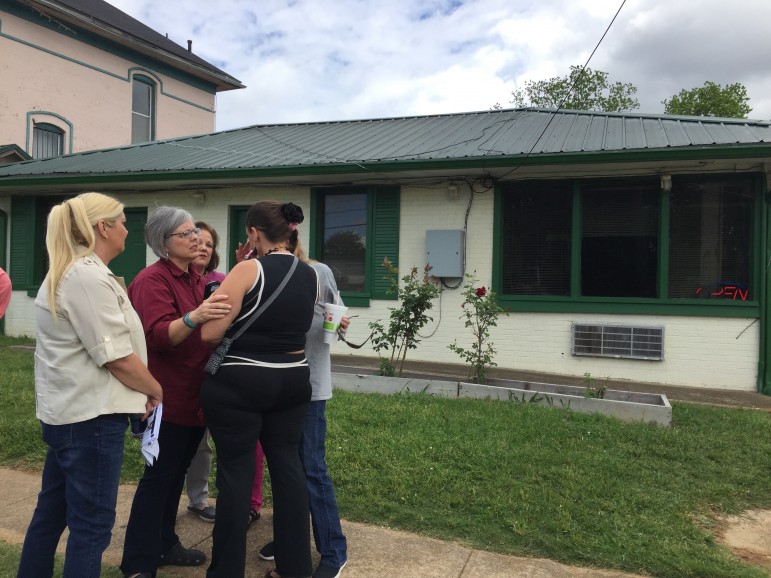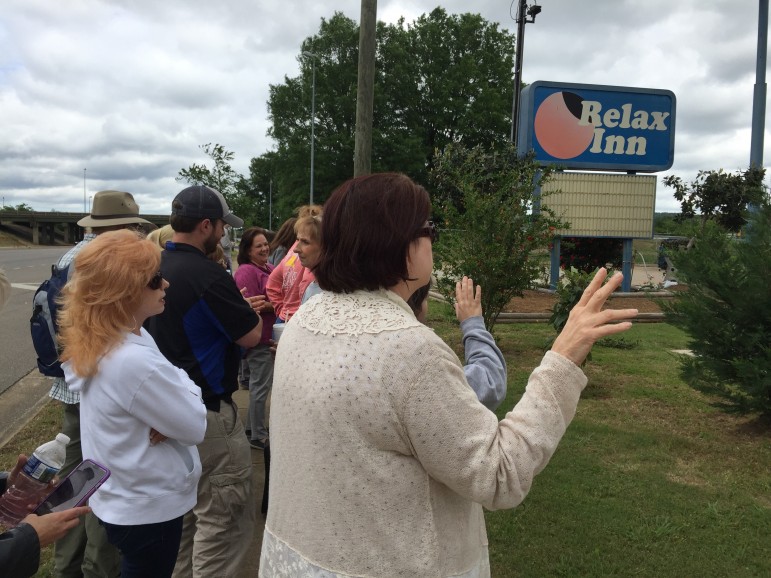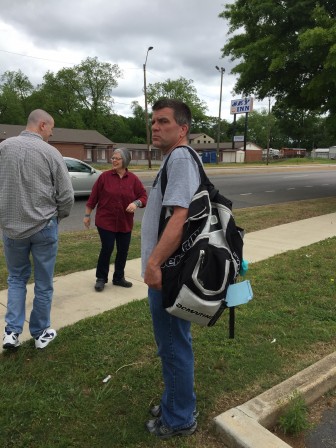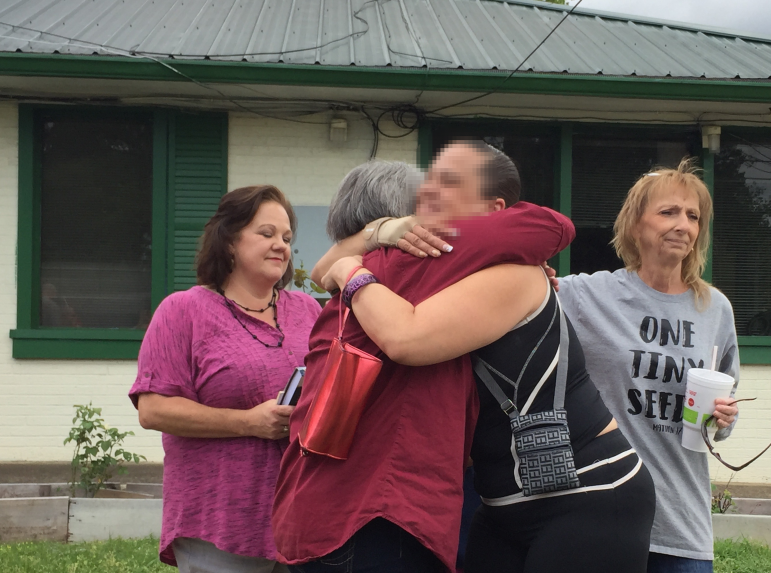Sex Trafficking in Alabama: The Crime & the Fight Against It
Two dozen volunteers walk down a main drag in Birmingham’s Woodlawn neighborhood. They’re within sight of I-20, which has come to be known as “the sex trafficking superhighway.” The group reaches a cluster of run-down motels where prostitutes work.
Soon, a young woman with a small bruise on her head comes out and asks everyone to move to where her pimp can’t see them. Once out of view, the volunteers hug her, and she starts crying. They tell her they want her to be safe, that she hadn’t “done anything to be beat on,” and that there are places that will help her leave that life. One of those places is The WellHouse, the shelter and rehabilitation facility for sexually exploited women that’s organizing this day’s outreach, which volunteers call “Special Ops.”
The goal is to give prostitutes the information and courage to leave sex trafficking behind. The volunteers carry pamphlets, fliers, Bibles, and concealable hygiene items with help-line numbers printed on them. Several of them know all too well what the victims face: Mary Elizabeth Minderhout says it happened to her.
“It starts out simple,” she says, adding that she grew up in an abusive situation. “It starts out as somebody telling you that you’re special and you’re loved, if you don’t have a family. And then, over time, it becomes abuse, and it becomes, you know, not just having sex with your boyfriend but their friends, and … and sooner or later, you’re trafficked. And you don’t even know it’s happening to you.”
People sometimes wonder why sex workers don’t just walk away. Every case is different, but pimps often threaten, beat, rape, or force addictive drugs on their workers. They steal documents that show who they are, taking away their identities not just emotionally but legally. They threaten their families, too. Lisa Roxanne, one of the original organizers of Special Ops, says women often continue in sex work because their pimps know where their children are.
And the trafficking rings are constantly on the move. Birmingham is on a circuit of interstates that help sex traffickers work a wide area without getting caught. They use technology too.
“The Internet has probably facilitated the explosion in the trafficking world,” says FBI Special Agent Cornelius Harris Jr. He and other experts say it’s impossible to know exactly how many victims are out there, but based on what Harris sees on the streets, he calls human trafficking in Alabama a significant problem.
“In any given operation,” he says, “we typically will run across anywhere from 10 to 30 potential victims of human trafficking, and that’s at one finite location that we’ve decided to target for an evening.”
Many of these victims are children. And advocates say they’re barely skimming the surface. They estimate just 2 to 4 percent of people ensnared in what they call “modern slavery” ever get rescued.
Even so, Harris says that when just one victim gets help, “we can really impact the way they view the rest of humanity. [They learn] there’s someone out there who can give them hope. And if we can take one trafficker off the street, there’s no telling how many other lives that we’ve impacted by not having that trafficker out there.”
In the last few years, law enforcement, state legislators, and nonprofits have ramped up cooperation to prosecute traffickers and rescue their victims. No one thinks the problem is going away. But neither are the people fighting it.
Here are possible signs of human trafficking.
You can access our three-part series on sex trafficking in Alabama here.
Birmingham is 3rd worst in the Southeast for ozone pollution, new report says
The American Lung Association's "State of the Air" report shows some metro areas in the Gulf States continue to have poor air quality.
Why haven’t Kansas and Alabama — among other holdouts — expanded access to Medicaid?
Only 10 states have not joined the federal program that expands Medicaid to people who are still in the "coverage gap" for health care
Once praised, settlement to help sickened BP oil spill workers leaves most with nearly nothing
Thousands of ordinary people who helped clean up after the 2010 BP oil spill in the Gulf of Mexico say they got sick. A court settlement was supposed to help compensate them, but it hasn’t turned out as expected.
Q&A: How harm reduction can help mitigate the opioid crisis
Maia Szalavitz discusses harm reduction's effectiveness against drug addiction, how punitive policies can hurt people who need pain medication and more.
The Gulf States Newsroom is hiring a Community Engagement Producer
The Gulf States Newsroom is seeking a curious, creative and collaborative professional to work with our regional team to build up engaged journalism efforts.
Gambling bills face uncertain future in the Alabama legislature
This year looked to be different for lottery and gambling legislation, which has fallen short for years in the Alabama legislature. But this week, with only a handful of meeting days left, competing House and Senate proposals were sent to a conference committee to work out differences.











